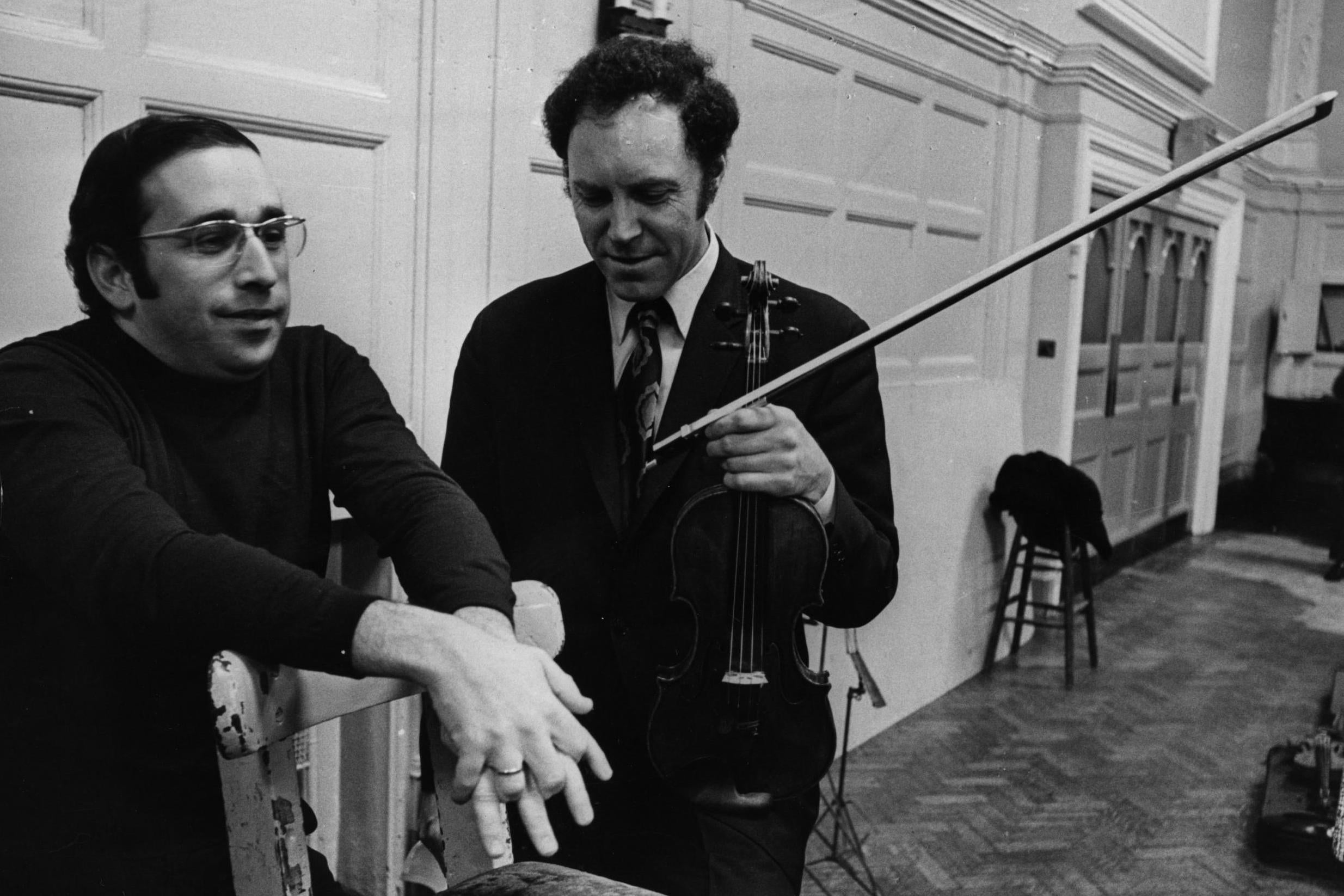Erich Gruenberg: Celebrated violinist who embraced everything from Brahms to The Beatles
The performer’s seemingly effortless delivery, unerring accuracy, warm tone and sensitive interpretations endeared him to audiences worldwide

Your support helps us to tell the story
From reproductive rights to climate change to Big Tech, The Independent is on the ground when the story is developing. Whether it's investigating the financials of Elon Musk's pro-Trump PAC or producing our latest documentary, 'The A Word', which shines a light on the American women fighting for reproductive rights, we know how important it is to parse out the facts from the messaging.
At such a critical moment in US history, we need reporters on the ground. Your donation allows us to keep sending journalists to speak to both sides of the story.
The Independent is trusted by Americans across the entire political spectrum. And unlike many other quality news outlets, we choose not to lock Americans out of our reporting and analysis with paywalls. We believe quality journalism should be available to everyone, paid for by those who can afford it.
Your support makes all the difference.Erich Gruenberg was that rare jewel: a teenage musical prodigy who matured into one of the finest and most sought after musicians of his generation.
While maintaining a nonstop global career as a top-flight concert and recording artist, the celebrated violinist remained at the forefront of that hugely vibrant emigre community who contributed so immensely to the broadening and enrichment of British cultural life throughout the second half of the last century.
Acclaimed by audiences and critics alike, the sheer breadth of his industry brought not only greater recognition for the instrument itself, but also proved pivotal in inspiring countless generations of aspiring performers.
The youngest son of a noted Viennese businessman, he first began studying the violin when a youngster in his native city. In 1938, aged 14, Erich and his elder brother, Eli, were rescued from rapidly increasing Nazi terror by Emil Hauser, leader of the Budapest String Quartet, who saw to it that they both won scholarships to study at the Jerusalem Conservatory. While there, Erich became leader of the Palestine Broadcasting Corporation Orchestra.
Gruenberg moved to London in 1946 to study with Max Rostal and 12 months later he won the highly coveted Carl Flesch Medal. As a result, he was soon engaged as the soloist in the Brahms Violin Concerto at the Royal Albert Hall with the London Philharmonic Orchestra. His performance earned rave reviews.
He became a British citizen in 1950, and alongside his brother Eli Goren, who went on to become leader of the Allegri Quartet and co-leader of the BBC Symphony Orchestra, Erich too became an integral part of the capital’s musical scene as well as postwar Anglo-Jewish life.
In a distinguished career, he led the Stockholm Philharmonic Orchestra, the London Symphony Orchestra and the Royal Philharmonic Orchestra. He also enjoyed rewarding artistic partnerships with pianists such as David Wilde, Eric Harrison, Franz Reizenstein, John McCabe, Fanny Waterman, Susan Bradshaw, William Glock and his eldest daughter, Joanna.
Gruenberg revelled in the unique opportunities afforded by the acquisition of a superb 1731 Stradivarius instrument, which worryingly went missing during his 1990 American tour, but happily resurfaced some months later in Honolulu.
With his colourful and virtuosic playing combining precision with unalloyed panache, his seemingly effortless delivery, unerring accuracy, warm tone and sensitive interpretations endeared him to audiences worldwide. Likewise, his sense of humour, generous spirit and impeccable timing won him the high regard of colleagues. As a regular visitor to the Abbey Road Studios, it was there that he appeared on two of The Beatles’ hit recordings, “A Day in the Life” and “She’s Leaving Home”. At the group’s behest, he wore a prop gorilla paw on his bow hand.
Notable among Gruenberg’s remarkably extensive repertoire of more than 40 concerti, were a number of compositions created specifically for him. Particularly challenging was a stunning violin concerto from the pen of a fellow refugee, Berthold Goldschmidt, which Gruenberg premiered on the BBC Third Programme in 1955. More recent was John McCabe’s Star-Preludes, which the duo first performed on their 1978 American tour.
Others inspired by his musical personality included Robin Holloway, David Morgan, Roberto Gerhard, John Mayer and Roy Travis. Many of his performances endure amid numerous radio broadcasts and a most diverse discography.
He was appointed an OBE in 1994 and his outstanding credentials also saw him regularly in demand as a keynote contributor to festivals, workshops and master classes worldwide. While maintaining a long relationship with the Leeds International Piano Competition, he also served as a jurist at numerous other similar events.
Likewise, as a teacher his influence has been no less immense. Having taught at the Guildhall School of Music and Drama from 1982 until 1989, he then spent the next 30 years as a member of the professorial staff at the Royal Academy of Music. He finally retired last autumn. He is survived by his wife and two daughters.
Erich Gruenberg, violinist, born 12 October 1924, died 8 August 2020
Join our commenting forum
Join thought-provoking conversations, follow other Independent readers and see their replies
Comments